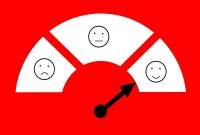- Home
- Business Processes
- Industry Knowledge
- Aerospace Industry
- Automotive Industry
- Banking Domain
- BFSI Industry
- Consumer/ FMCG Industry
- Chemicals Industry
- Engineering & Construction
- Energy Industry
- Education Domain
- Finance Domain
- Hospitality Domain
- Healthcare Industry
- Insurance Domain
- Retail Industry
- Travel and Tourism Domain
- Telecom Industry
- Leadership Skills
- eLearning
- Home
- Leadership
- Communication Skills
- What is Project Management
What is Project Management
Are you leading or involved in projects that are critical to your business or your team or your organization? What are the challenges you face while managing these projects? Do you feel yourself to be in control of the project and are able to track all deliverables to get successfully completed by the deadline? Do you have methodologies, clear processes, and systems in place to manage your projects? Are your projects able to meet the business objectives they intended to achieve?
This section of our website is targeted at individuals who manage projects as a primary function of their work. Continue with these tutorials to gain an operational understanding of the basic concepts and tools of project management as well as advanced tools to manage the real-world challenges you will face. We will start with the basic concepts and tools and slowly move to advanced topics improving your project management skills.
We will address the core concepts behind “Project Management” and help you navigate through the real-world challenges and troubleshoot problems that may be affecting your project team’s performance and work. We will give you tools to deal with miscommunications, conflicts, or sagging loyalties that get in the way of high performance. We will also give you an opportunity and toolkit to put those concepts into practice during the learning sessions.
Some of the objectives that we have tried to address while creating these tutorials are:
1. Exposure to real business projects with high business impact
2. How to create a well-defined project with clear deliverables
3. Tools and concepts behind defining project scope, detailed guidelines
4. Moving from theoretical concepts to a great learning experience
5. Short and precise structured course output
6. Exposure to best practices and good use of project management tools
7. How to leverage very good teamwork during projects
8. How to ensure the impact of the project on pre-defined business objectives?
9. Ensuring that the participant learn & apply project management tools & techniques
10. Time & commitment impact – for the participant, you and for your team
11. Impact of learning on your role - does participant is able to apply some of the skills & knowledge learned on actual job
12. Developing people and ensuring the learning has an impact on the performance
13. Help participants better understand the strategy & challenges of their own businesses
14. Tools to make people aware of cultural differences between geographies/businesses
15. Enhancing the ability to see the big picture
16. Increased hands-on knowledge & understanding of other functions within the organization
17. Understand the power of best practice sharing - “participant will start looking for connection within the business before doing things by himself”
18. International best practices that can be applied in business projects
19. Guidance on applying tools & knowledge
20. Increased self-confidence - “Participant is now able to voice her opinion & challenge others in the meeting. He/She drives project more proactively”
21. An eye-opener on a variety of career paths “participant is realizing there are other options available for them than a current role for her next move”
22. Noticeable improvement in leadership skills
23. The participant is using the new network to get fresh ideas/advice
24. The project gave visibility & exposure to the participant
25. Developing presentation skills
26. Tools to evaluate what can be done differently
27. Practical, real-world project management examples (Customer Focus)
28. Career Benefits - More & wider responsibilities within the same department; New role (lateral move, promotion); Move to the management role
29. Make participants aware that the higher they go, the more they will have to work on things in parallel
30. How do you manage everything; how do you set priorities, resources, etc.?
31. Prepare participants for bigger roles; How to deal with uncertainty?
32. Other areas of development - Teamwork … collaboration…
Related Links
You May Also Like
-
Communication is defined as the process of meaningful interaction between two or more persons with a view to arriving at a common meaning and understanding. There are different types of communication and these are used on different occasions. In this section on communication skills, Technofunc will equip you with the skills most needed in today’s dynamic, demanding workplace.
-
Collaborative leadership is all about collaborative problem-solving and decision-making or can also be defined as the leadership of a collaborative effort. . The term started to appear in the mid-1990s in response to the formation of long term public-private partnerships to rebuild public infrastructure. Learn how you can use principles of collaborative leadership to enhance your leadership skills for being an effective leader.
-
Creating Highly Effective Teams
How do we create effective teams? What comes to mind when you think about an effective team? High performing teams exhibit accountability, purpose, cohesiveness, and collaboration. It is a team that works seamlessly as a whole. Everyone brings unique talents and strengths and support each other to bring out the best in everyone. How do you create one?
-
Tools for Developing Your Team
If a manager has too many weak spots in the talent of the team, the ability to empower the team members to independently execute the project is impaired. Assignments fall behind schedule or stretch out because the needed skills or knowledge are not in place when needed. To successfully execute important projects, hiring talented people, and increasing the talents of existing staff are most important.
-
Recognizing Stress & its Sources
As an individual, you almost certainly know what stress feels like. Stressors are events or situations to which people must adjust. Stressors may be physical or psychological in nature. The level of severity of stress is determined not merely by exposure but the intensity, duration, and frequency of stressors. The sources of stress are many. They arise from multiple areas both with the individual and from the environment.
-
As we know change is inevitable as market expectations are not static, new technology is constantly being developed, and organizational responses are inevitable to these sequences. It is a simple matter of business evolution. If every manager and every employee could have some understanding of the triggers of change and their relationships with each other, then the acceptance to change would be easier.
-
Crisis leadership is a very important part of leading in today's world. The skills a leader needs in order to guide people during a crisis are different from the skills needed to help a group grow. Are you a good crisis leader? What is your leadership style in case of a business crisis situation? A business crisis can test the strongest of leaders, read this article to explore how to ensure you’re ready to take action and weather the storm when one strikes you.
-
Evidence of the medically damaging symptoms of work stress necessitates applying the treatment of stress management. Stress management is increasingly drawing the attention to the management experts not only as a remedial measure but also as a way to resource management. If the workplace can be made a little more lovable the increase in the achievement of the organization may be much time more. If group stress can be removed by introducing group discussions and recreational facilities a long-lasting team spirit may get developed.
-
Team Development by Building Trust
As your team begins to work together, you need to establish a way each team member can exchange ideas and build mutual trust. Successful groups are built on trust and collaboration. A free exchange of ideas, in an open environment, will allow your team to get to know each other and enable you to check on how they work together. Learn some tips to help build team trust and establish personal bonds.
-
Understanding of how individuals of different cultures interact with each other is very important. Not all individuals can adapt to the leadership styles expected in a different culture whether that culture is organizational or national. In a fast-paced business environment, developing a richer understanding and sensitivity to other cultures is a skill that leaders must possess. Learn to be effective in a cross-cultural setting.
-
Benefits of Teams in Workplace
The use of formal work teams is commonplace in modern organizations. But why we have teams? What are the benefits or advantages that teams provide for organizations and employees? Do we really need to adopt formal team structures and use team-building approaches in organizations? Read this article to explore and learn the benefits of having formal teams in organizations.
-
Storming Stage of Team Development
Storming is the second stage of team development and this stage is characterized by a bid for power and inter-personal conflicts. Learn the key factors that occur in the storming stage and the strategies that a team leader can adopt to pass this stage of high winds
-
Concept & Definition of Stress
Stress is a popular expression used by people in day to day life. Pressures of day to day living sometimes necessitate coping or dealing with them and stretch the body beyond its natural capacity. They are called stressors. Stress is a natural, ongoing dynamic, and interactive process that takes place as people adjust to their environment.
-
Many people think communication is easy. It is said that communication can never be a hundred percent complete. Many factors are involved in the process of communication and something can always go wrong with one or more of these. It becomes difficult and complex when we put barriers in communication. Recognize barriers to interpersonal communication and examine specific strategies for overcoming those barriers.
-
Listening is the foundation for good communication. It is also the hardest skill to master. Do you listen to confirm what you already know, or do you listen to explore and learn new things? How can we create receptive communication as a listener? The real art of listening involves awareness and sensitivity to the feelings of the speaker because it is at the feeling level that genuine connection, relationship, and healing occurs.
Explore Our Free Training Articles or
Sign Up to Start With Our eLearning Courses

About Us
Learning
© 2023 TechnoFunc, All Rights Reserved















